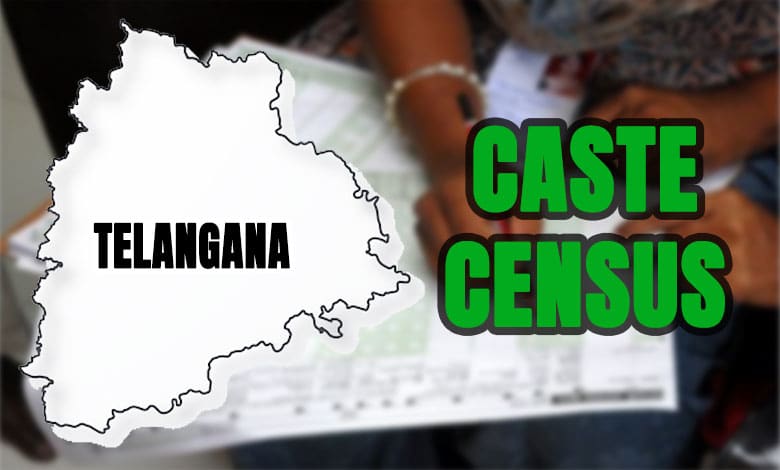Telangana’s Caste Census Survey: 75 Questions, No Photos, Full Details on What to Expect

Hyderabad: The countdown has begun for Telangana’s comprehensive Caste Census, scheduled to start tomorrow, November 6. In a significant move, the state government is set to conduct a house-to-house survey to collect detailed data on caste, social, economic, educational, and political backgrounds of the population.
This survey, expected to last for three weeks, is a crucial step in the government’s ongoing efforts to address caste-based reservations and social justice in the state.
What to Expect During the Survey
The government has deployed more than 50,000 staff members for the survey, which will be conducted across Telangana. Each supervisor will oversee the collection of data from 150 households. The survey will be carried out in two parts, consisting of 75 questions—56 main questions and 19 supplementary questions. These questions will cover a range of topics, including personal details, family information, education, employment, assets, caste status, and more.
Also Read: Important Instructions for Muslims Regarding Telangana’s Caste Survey
Survey Structure
- Part 1 will focus on personal details, including the family head’s name, caste, education, occupation, marital status, income, and more. This section includes a total of 60 questions.
- Part 2 will gather information about assets, debts, land ownership, and the family’s financial situation. Details such as agricultural land, loans taken in the last five years, and the use of government schemes will also be collected.
Important Guidelines
- No Photos or Certificates: The surveyors will not take any photographs of the household or family members. No certificates will be required, and there is no need for all family members to be present during the survey. The head of the household can provide the necessary details.
- Survey Questions: Enumerators will ask questions related to caste, employment, educational benefits, land ownership, loans, and more. They will also inquire about government schemes benefited from, such as reservations for SCs, STs, BCs, and EBCs, as well as details about migration and political involvement.
- Details on Property and Loans: Part 2 of the survey will collect information about family assets, including movable and immovable properties. For households with agricultural land, information such as the Dharani passbook number, irrigation sources, and leased lands will be recorded. Additionally, the survey will inquire about any loans taken in the last five years, including their purpose and source.
- Confidentiality and Sign-Off: After completing the survey, the head of the household will be asked to sign an affidavit confirming the accuracy of the information provided.
Political Implications
The caste census is a significant political move in Telangana, especially in the context of the Congress party’s promise to allocate 42% reservation to BCs in local bodies. The party had promised to conduct the caste census in its manifesto, and upon coming to power, Congress passed a resolution and allocated Rs. 150 crore for the survey.
The survey comes at a time of heightened political tension, with both the government and opposition debating the potential impact of the caste census. The opposition has raised concerns over how the survey will be conducted, but the government remains determined to push forward with this ambitious initiative.
Looking Ahead
The results of this survey are expected to influence future policies related to reservations, welfare schemes, and social justice measures in Telangana. With Congress leader Rahul Gandhi’s upcoming visit adding political momentum, all eyes are on how this landmark survey will unfold and whether it will bring the promised changes to the state’s social fabric.
This survey marks a crucial step in the state’s efforts to gather accurate data and address issues of caste-based reservations and social inequality. As the process moves forward, the government has assured transparency and accountability in collecting and utilizing the data.
